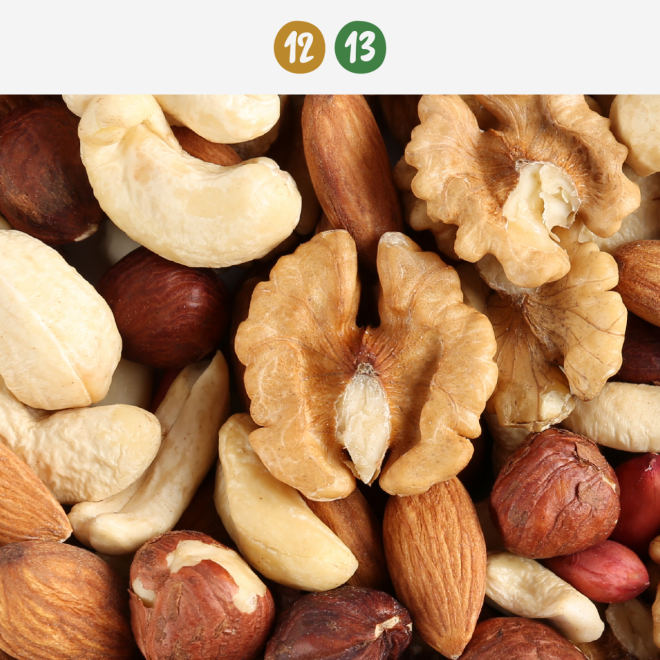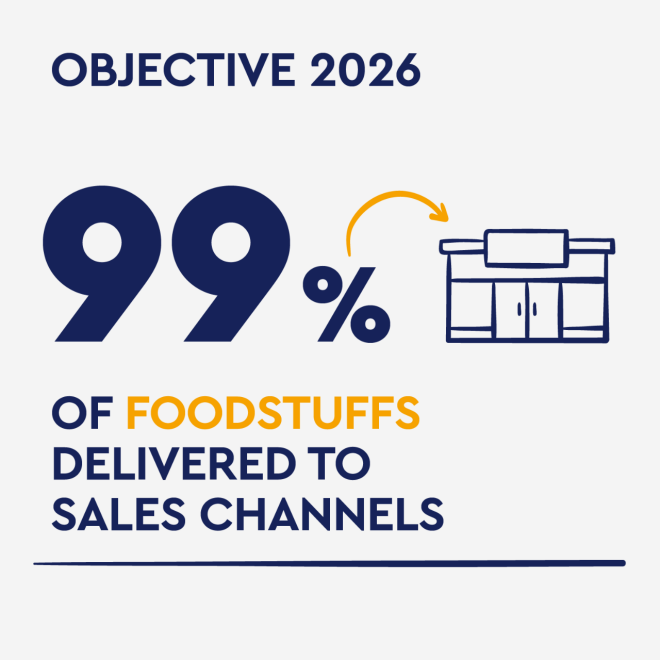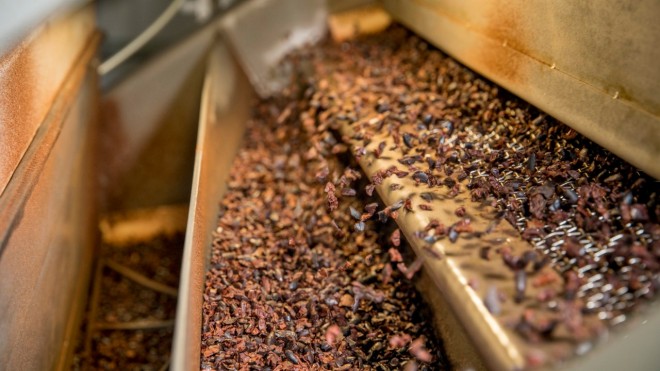
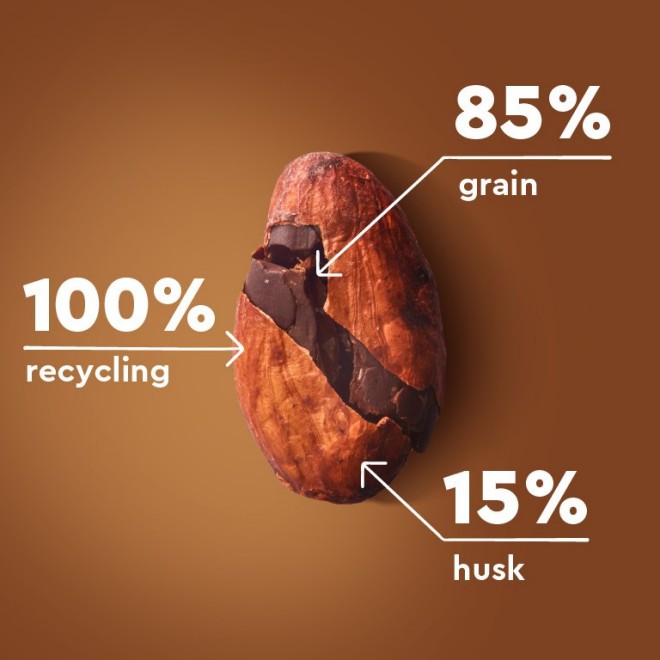
In the beginning, there is always the cocoa bean. It is the main raw material used for producing chocolate. The first step involves the harvesting of raw cocoa fruits, followed by the fermentation and drying of their seeds in the country of origin.
After a long journey across the ocean, the cocoa beans arrive at their country of destination for further processing. Upon arrival there, they are cleaned, roasted and broken in order to separate the husk from the cocoa beans. What remains are the cocoa nibs, crushed cocoa beans that have a chocolaty, slightly bitter taste. These cocoa nibs are ground into cocoa mass, the most important ingredient in chocolate.
Every year, HALBA ends up with around 600 tonnes of cocoa husks as a by-product of its chocolate manufacturing process. By weight, cocoa shells make up 15 per cent of the entire bean. This valuable «waste product» has several useful properties that enable it to be reused in various areas: for example, cocoa shells are rich in minerals, making them a high-quality source of additional nutrients. The cocoa shell left over from HALBA’s production process are used in a variety of products, such as garden mulch, where they function as an organic fertiliser, and cocoa shell tea, which they give their characteristic chocolatey flavour.
Thanks to this reuse, the cocoa beans fulfil the principle of a circular economy: their processing does not generate any waste, as 100 per cent of the roasted cocoa beans are utilised.
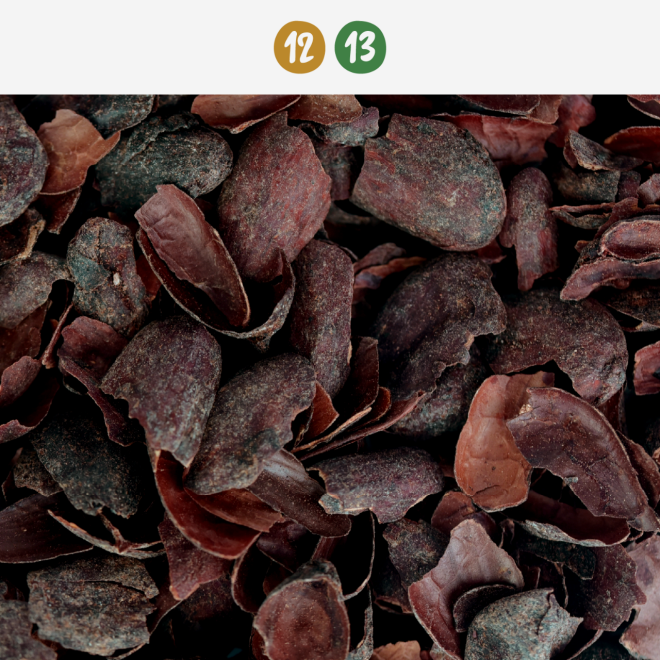
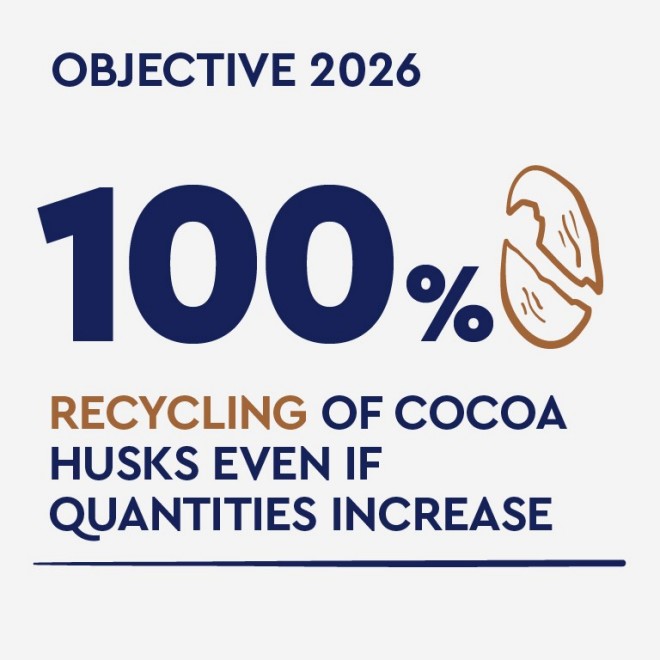
Food production requires arable land, nutrients, water and energy. With food waste, these valuable resources are consumed in vain. Food waste is generated at different levels of the value chain. It is comprised of edible food produced for human consumption, which is not however actually consumed by people. Depending on the extent of the losses, these can have serious impacts on the environment and climate through CO₂e emissions, water consumption or erosion. Food waste is also ethically untenable – whereas the western hemisphere has a food surplus, millions of people are starving in developing countries.
The topic of food waste is enshrined in HALBA’s corporate strategy. Technological innovations for a successful reduction of food waste are continuously analysed and measures to reduce food losses and waste quantities implemented. If a product (chocolate, snacks, baking and cooking ingredients) approaches its best-before date, the relevant employee in the quality management department receives a warning. They immediately coordinate the timely utilisation of the product with the production planning and sales teams.
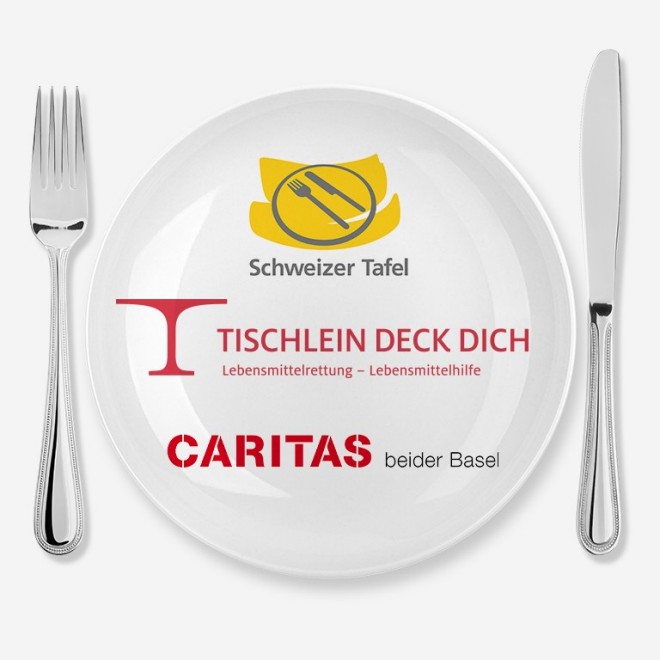
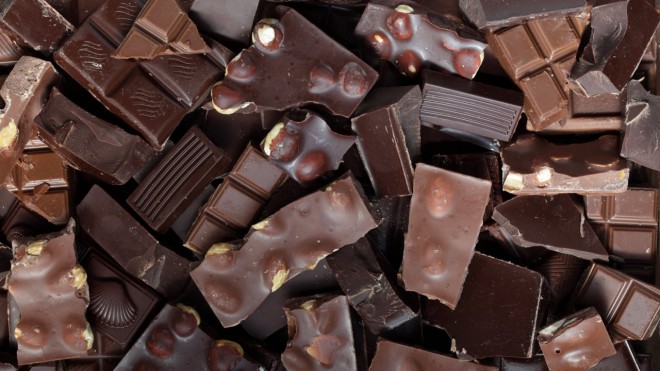
Chocolate production is a complex, multi-layered process. «Breakage» occurs in every production process - for example, when setting up the equipment at the beginning of a production order. This chocolate cannot be sold through the normal channels, but it is perfectly safe to eat. That is why HALBA sells it at low prices in its two factory shops in Pratteln and Hinwil. Any remaining stock of snacks and baking and cooking ingredients that are discontinued in the regular catalogue are given to the charitable organisations Tischlein deck dich, Caritas and Die Schweizer Tafel.
All other food waste that is generated despite the measures described above is made into animal feed.
